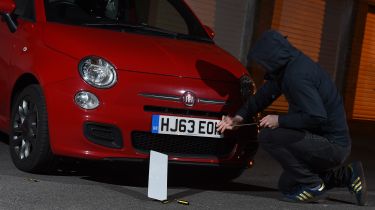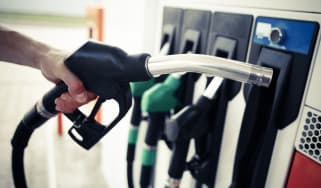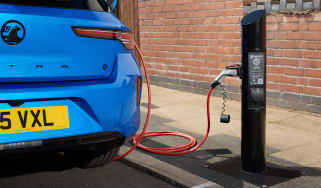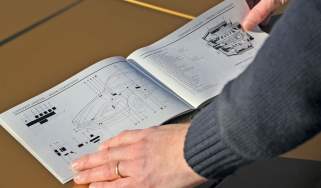Car cloning explained: what happens when your car’s identity gets stolen?
Find out what to do if your car has been cloned and why it might have happened

Car cloning is when bad actors deliberately disguise one car’s identity by copying the details of another to create a new identity for it. Criminals use number plates from legitimate cars to cover up stolen cars and hide them from police, or to commit crimes with no risk of the car involved being used to trace their identity.
It’s a worrying thought and your car could potentially be cloned without ever going missing or you having any idea its identity is being used elsewhere. The first idea you’ll get is when the police show up at your door after someone has committed a crime with what looks to them like your car.
There could be as many as 20,000 cloned vehicles on UK roads, according to estimates from the National Police Chiefs Council (NPCC). They show how crooks are stealing the identities of other cars in order to sell stolen or written-off vehicles for cash – mostly on social media.
The NPCC told Auto Express that it believes “around 0.05 per cent of vehicles have cloned plates, and while this percentage might sound small, it is in no way insignificant, given these vehicles are likely to be connected with crime or revenue evasion.”
What is car cloning and how does it work?
There are several factors that come together to create a car’s identity and cloning is when criminals copy some of these details from a legitimate car and apply them to another. The car’s make, model, colour, number plate and Vehicle Identification Number (VIN) are the main ones, but given that you can’t change the make or model, and that a car’s colour can cost thousands to change effectively, it’s usually the number plate and VIN that are copied from a car of the same make, model and colour.
A common way that bad actors clone a car is that they look online for classified ads featuring cars with the same make, model and colour as the car they want a new identity for. They copy the number plates in the pictures and create an illegal, fake set of plates that are put on the car they have. This means the car in the advert ends up having a clone: there’s another car out there with the same plates, so to police cameras and any onlookers, the two vehicles look identical.
Part of the issue with car cloning is that companies are able to produce number plates for “show” purposes without legal markings on them, so criminals are easily able to get plates made with any registration number they want. Legitimate plates are only able to be made by approved places, after the customer has provided proof that the car has the right to use that plate.
The car’s Vehicle Identification Number (VIN) isn’t changed in this method, however, so police are able to confirm the correct identity of the car by checking this (it’s at the bottom of the windscreen on most modern cars, and the V5C document will have it printed on as well). Speed cameras can’t spot a VIN, so some criminals won’t bother with cloning that as it’s much harder to do.
Cars are also cloned for other reasons, such as to cover up a dodgy past - maybe the car is a dangerous write-off not fit for use, or has been used in some other crime. To cover up the car’s identity, dodgy car dealers might clone the VIN of a legitimate car to sell it on. To an uninformed buyer it would look like the car is clean, and an HPI check would not show any issues, but the buyer could be in trouble once the cloning is discovered.
How to avoid buying a cloned car
There are some checks you can do to avoid buying a cloned car, aside from choosing to buy direct from manufacturers or larger dealer groups (although even they can be fooled in rare cases).
All number plates should have maker marks on the bottom in small lettering and also look out for the ‘BS AU 145e’ markings. You should check that the number plate is the same on the V5C document as on the car, and also that the VIN matches the V5C. Look at the bottom of the windscreen to find the VIN and check it against the one on the document.
If there are signs of damage around the VIN plate on the car or it looks anything other than factory-perfect then there could be cause for suspicion that it has been altered. Any tampering with the VIN is worrying and you really should walk away even if the seller gives an excuse about why it might be like that.
History checks like one from HPI can help to see if the car has been stolen or written off in the past but be aware that if you check the plate of a cloned car, it will simply show the details of the real car on that plate so won’t be of much use. All the usual car buying red flags are true of cloned cars, too, such as a too-good-to-be-true price or a seller who drops the asking price more readily than expected. Ask yourself why they are trying to shift the car so quickly - could it be a dodgy motor?
Top tips to avoid buying a cloned car
While it can be hard to stop your car being cloned, there's plenty you can do to avoid being duped into buying a stolen car with a fake plate. Here's our checklist when buying:
- Always view the car at the address on the V5C and don't buy it from a lay-by or pub car park.
- Check all the VINs. Make sure they match each other and those on relevant documents.
- Run history checks; this will flag up any write-offs being cloned, plus any other red flags.
- Check the car is actually what's described - often it's not a perfect match. The colour, make and model might be right, but examine finer details like engine size.
- If the car is being sold for less than 70 per cent of its market price, be suspicious. If a deal sounds too good to be true, it normally is.
- Never pay cash for anything over £2,500 - credit cards can be a safety net.
- Buy with your head and not your heart.
Has my car been cloned?
If you have received a fine in the post for speeding or some other offence that you know you didn’t commit then you might start to suspect that your car has been cloned. It’s usually pretty obvious, as you were not driving that day or the speeding ticket is from a road you’ve never driven on.
You might also get pulled over by the police, or even get a knock at the door, if your car has been cloned and then used in a crime like a robbery or was in a car chase and has been put onto the crime database.
Until the criminals use the cloned car to commit crimes, you probably won’t know that your car has been cloned - aside from if you happen to see the cloned version of your car in the street, but that’s pretty unlikely.
What to do if you suspect your car has been cloned
If the police show up at your door and say your car has been involved in a crime, you just need to tell the officers the truth and show evidence that your car is legitimate and where you were on the day in question. Unless you’re very unlucky and were also present at the crime scene in your car, the police will sort out the situation from there. If you simply get a speeding fine in the post it’s a bit more of a pain to absolve yourself of blame.
You’ll need to contact the police straight away and let them know that you have received an incorrect fine and that you suspect the car has been cloned. You should get a crime reference number for this and you’ll want to collect evidence to prove your story as much as possible.
This could be a receipt from your day that proves you were in a certain town at a certain time, a photo or video with a timestamp or even statements from people to prove you weren’t driving the car in question. Anything that can help to prove you were not speeding at the time given.
Once you have the crime number you can contact the authority that sent the NIP (speeding ticket) and tell them that your car has been cloned. The authority will pause the fine to allow investigation to happen, and you can provide your evidence to them at this point to help your case as well.
You might also be able to prove the car used for the offence is not yours, for example if the picture taken shows different wheels or a sunroof that your car does not have fitted. It might not even be the same colour or the same model, in which case it will make it a lot easier to prove. The person driving might be visibly not you, as well.
You can also get in touch with the Driver and Vehicle Licensing Agency (DVLA) and inform the organisation that the car has been cloned. You might be able to get a new number plate to help prevent it happening again.
If you buy a car and it turns out to be cloned then you are in a very sticky situation as if it’s a stolen car then the rightful owner - either the original owner or the insurance company that has paid out for it - can take it back and you won’t see any money back. The dealer you bought it from might give you a refund if they are a legitimate organisation but any trader selling stolen cars is likely to disappear very quickly.
How to prevent car cloning
One of the main ways criminals get number plates to use for car cloning is on the internet, so any time you post a photo of your car online you could use photo editing software (or a clever angle) to obscure the number plate. This applies to pictures on social media as well as if you are selling your car on a classified site.
You can also park the car with a cover or in some place where the plate can’t be seen from the road or Google Street View cameras. However, car cloning using these methods is unlikely and you shouldn’t worry so much about it that you never display your plates at all - life’s too short. If your car gets cloned there will be a bit of stress for a while but in 99 per cent of cases the police will be helpful and you won’t have to do much to get it sorted.
How much is your car worth? Find out with our free car valuation tool...










